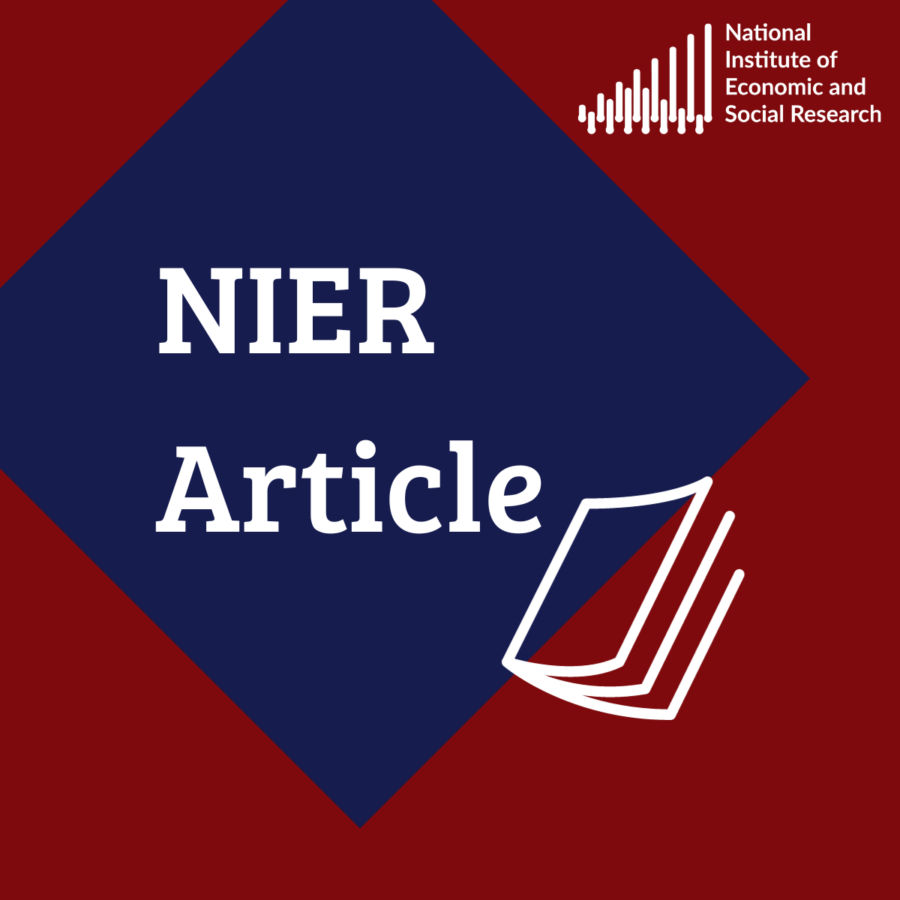- Home
- Publications
- The Unintended Consequences Of English Votes For English Laws
The unintended consequences of English votes for English laws
 Pub. Date
Pub. Date
 Pub. Type
Pub. Type

Related Themes
Macro-Economic Dynamics and PolicyJEL Code
E42, E58, E61, E63, H77
Journal
National Institute Economic Review, No. 233
Publisher
Sage Publications, London
External Resources
Abstract:
The Smith Commission has proposed a set of reforms aimed at extending Scotland’s control of its revenues to 46 per cent and spending to 55 per cent and extending the legislative reach of the Scottish parliament. In reaction, the Conservative government has announced plans to implement some form of ‘English Votes for English Laws’ (EVEL). Under EVEL, a majority of English (and Welsh/Northern Irish) MPs would be necessary to pass legislation deemed to be only impacting on those nations. The objective of this paper is to examine the impact of EVEL on monetary policy, focusing on the potential for spillovers from fiscal policy choices. We will extend a model of Chari and Kehoe (2008) to show that because England is so much larger than the other constituent nations of the UK, its fiscal policy choices will have a commensurately stronger impact on UK monetary policy. As a result, UK monetary policy might be inappropriate for the smaller nations, calling into question the economic efficiency of EVEL.
Related Blog Posts



Public Debt Sustainability and Fiscal Rules
Stephen Millard
Benjamin Caswell
05 Feb 2024
4 min read

Related Projects
Related News

Call for Papers: Lessons From Quantitative Easing & Quantitative Tightening
09 Feb 2024
1 min read



Related Publications

Adam Smith and the Bankers: Retrospect and Prospect
04 Jan 2024
National Institute Economic Review

On the Promises and Perils of Smithian Growth: From the Pin Factory to AI
04 Jan 2024
National Institute Economic Review

Economic Progress and Adam Smith’s Dilemma
04 Jan 2024
National Institute Economic Review

Adam Smith’s ‘Wealth of Nations’ is Still Relevant to UK Trade Policymaking on International Trade
04 Jan 2024
National Institute Economic Review
Related events

Assessing Cycles and Structural Changes in Markets

Business Conditions Forum

2022 Dow Lecture: The Economy and Policy Trade-Off






